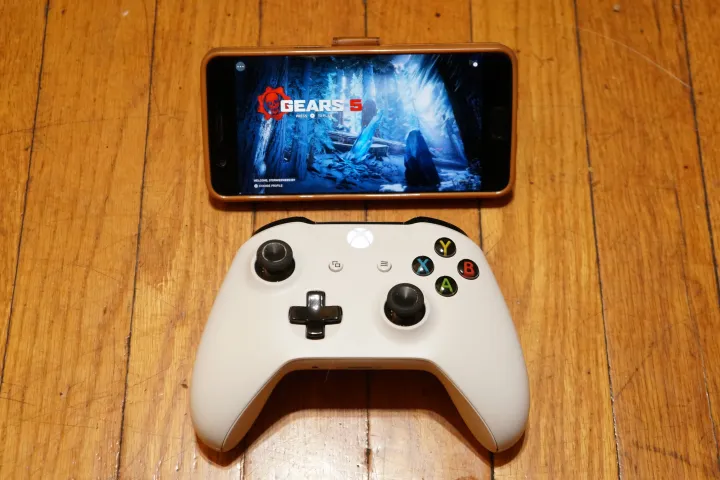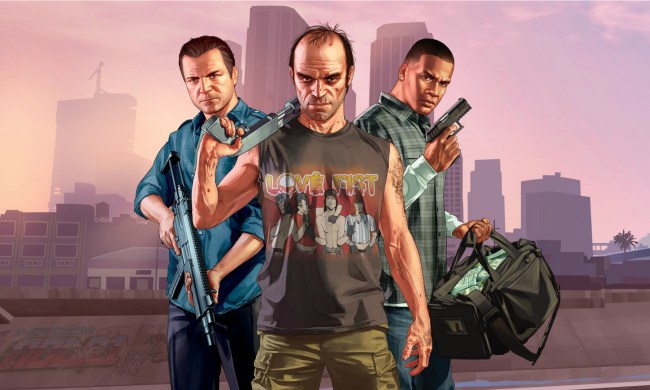It’s an understatement to say that 2020 was an unpredictable year for gaming. It felt like there was a new bombshell story every week, from Apple dropping Fortnite from the App Store to Microsoft acquiring Bethesda. Despite all of that, 2020 was a hugely successful year for gaming. Analysts predict that the industry will top $180 billion in value when 2020 is all said and done.
With a massive year on the books, the immediate question is: What’s next? The answer is something of a mystery at the moment. A large part of the gaming bump was likely due to the COVID-19 pandemic, which left people stuck inside searching for entertainment. The industry has an attentive audience waiting to see what’s next, so companies have a tall task ahead when it comes to pushing the momentum.
While it’s hard to predict anything heading into 2021, there are a few trends and challenges to look out for in the new year. Here are some of our biggest gaming predictions for 2021.

Expect heavy delays
Game delays were a normal part of gaming in 2020. Many of the year’s biggest titles had to shift release dates due to the unforeseen complications that came with work from home development. Gamers shouldn’t expect that to slow down anytime soon; in fact, there’s a good chance it gets much worse.
We’re already seeing those delays take place at studios like Ubisoft, which has shifted most of its planned release dates already. Far Cry 6 and Rainbow Six Quarantine were supposed to come out this holiday season but now have undefined 2021 launch windows. Ubisoft specifically cited the challenges of work-from-home development as a main reason for the shift and that situation doesn’t seem like it’ll fully change anytime soon.
In truth, we’ve yet to see the full impact of COVID-19 on game development. Many of the games that were delayed this year were already pretty late into development. The Last of Us Part II was close to finished when it got hit with a last-second summer delay. What we don’t know is how much worse this has been for games that are still early in their development lifecycle. There’s a chance that we’ll see more gaps than usual in the gaming release calendar over the next few years, which could slow the industry’s momentum.

Among Us and Animal Crossing copycats
Gaming’s biggest hits came from unexpected places in 2020. Animal Crossing: New Horizons moved over 26 million units and left gamers everywhere scrambling to find a Nintendo Switch online. Meanwhile, tiny indie game Among Us randomly emerged from 2018 obscurity to become a multiplayer phenomenon. Studios will almost certainly want to capitalize on that success and see if they can make lightning strike twice.
Video games are a heavily trend-based medium. When there’s a major financial success story, everyone wants a piece of the pie. We’re still seeing that play out with battle royale games, as studios like Ubisoft and even Nintendo released their own spin on the popular genre this year. While Animal Crossing owns the “peaceful life simulator” market right now, it’s likely that we’ll see much more competition on that front next go-around.
In the more immediate future, it’s only a matter of months before Among Us-like games start flooding the market. The indie hit has the kind of simple, but genius idea that’s going to be easy for giant studios to emulate fast. We’ve already seen early signs of that with Epic spotlighting a community-made hidden identity game in Fortnite called The Spy Within. Expect more official variants on the game to become commonplace within the next few months.

Cloud gaming goes into high gear
Cloud gaming has yet to pick up in a significant way despite all the investment that’s gone into it. The Google Stadia was a dud at launch and barely anyone is talking about the Amazon Luna. The idea seemed dead in the water, but the past year of groundwork could be about to pay off.
There are rapid changes coming to the budding cloud gaming industry. Stadia is finally available on iOS, which is an important milestone. But Microsoft is the company to watch. It has slowly worked on its own cloud gaming service over the past year, and 2021 is going to be its biggest test yet. The service will be available on iOS in the Spring, significantly widening the potential install base. With Game Pass attracting more and more subscribers, players are going to have immediate access to the service on whichever smartphone they own whether they want it or not.
When it comes to cloud gaming, playing is believing. It’s an impressive, though currently flawed, technology that feels like a magic trick. Seeing a major studio game run on a phone screen is genuinely impressive and the more people see it firsthand, the more convinced they could become. There likely won’t be a cloud gaming boom in 2021, but it’s poised to become something more than an industry footnote this year.

Epic Games becomes a mega power
Epic Games had a bizarre year. The studio spent most of it embroiled in a legal battle with Apple that ended with Fortnite being permanently removed from the App Store. Epic did not take the case lightly and made it clear that it is hoping to stir the pot further. The best revenge? Becoming a mega power big enough to rival Apple.
If that sounds unlikely, consider how powerful Epic already is coming out of 2020. Fortnite has essentially morphed into an elaborate marketing platform that’s attracted corporations like Disney. We saw a trailer for Tenet debut in its Party Royale mode, and artists like Travis Scott holding mind-bending events in the game. Fortnite is turning into something that’s much bigger than a video game; it’s becoming a lifestyle brand that everyone wants to collaborate with. That momentum is only going to push forward in 2021, expanding the company’s ever-expanding war chest (the company is currently valued at over $17 billion dollars).
We’re already seeing clues about where Epic is going to put its resources next. The company recently made the Spotify app available on the Epic Games Store, signaling that the service could become a full-on App Store rival soon. It’s a bit of a left-field prediction, but the ultimate play here would be Epic creating its own phone and mobile ecosystem to take an even bigger shot at Apple. While that might be an overly ambitious plan, a bold step like that could make Epic more akin to Sony or Microsoft in 2021 and shake up a dynamic that hasn’t changed much in the past 20 years.



